An International Driving Permit (IDP) issued in any country other than South Africa (RSA), is valid to drive with in the RSA if:
- The IDP was issued on a date on which the holder thereof has not been permanently or ordinarily resident in the RSA. A person is permanently resident in the RSA if he/she is a RSA citizen, or disposes over an official document issued by the Department of Home affairs that grants the right to permanently reside in the RSA, and he/she resides in the RSA. Contract workers and visitors are not permanently resident in the RSA if they do not comply with the aforementioned conditions, regardless of the length of their stay in the RSA and therefore the IDP will be valid until expiry. A person is ordinarily resident in the RSA if he/she is in the RSA on an extended visit of more than three months on a contract of employment (not just visiting); and
- The IDP is accompanied by the driving licence on the authority of which such permit was issued. The driving licence may have been issued at any time even if the person resided permanently in the RSA at the time the licence was issued and may be in any foreign language and without a photograph and signature; and
- The IDP is valid (i.e. it has not expired yet).
An IDP remains valid until the expiry date of the IDP OR until the driving licence on the authority of which such permit was issued is no longer valid OR until the holder thereof has been permanently resident for a continuous period of 1 year in the RSA, whichever is earlier.
The holder of an IDP may drive a motor vehicle of the appropriate class for own use. The person concerned may not drive a motor vehicle for which a professional driving permit is required.
Table of Contents
How to Get an International Driving Permit in South Africa?
An International Driving Permit is a translation of your national driving license. The IDP allows motorists to drive vehicles in foreign countries. You must always have your IDP along with your national license at all times. To get an International Driving Permit in South Africa, visit AA South Africa.
Contact:
For more information, contact our Travel Office Directly on:
Call 0861 000 234 (select option 5, then option 1).
Available Monday to Friday, from 08h00 – 17h00.
A complete list of National Sales agents is available on the AA South Africa Website
More Information:
An International Driving Permit (IDP) is a legal document, valid for 1 year or until the expiry of your driver’s licence, whichever comes first.
In many countries English is not an official language, so your IDP will provide a translation of your South African driver’s licence into several languages as well as the five official UN languages. This allows your licence to be read and understood in many countries. It also provides validation of your South African driver’s licence, and an alternative proof of identification when you travel in foreign countries and need to rent a car or obtain insurance.
An International Drivers Permit must be applied for in the country in which you obtained your driver’s licence before you travel. South African residents can apply online through the South African Automobile Association. Please note that The AA cannot issue an IDP to citizens of Botswana, Lesotho and Swaziland who are in the possession of a valid driver’s licence issued in that country but The AA can issue an IDP to citizens of Namibia who are in the possession of a valid Namibian driver’s licence.
Requirements:
All you need to do is fill out an application form, submit a photo and copies of the following valid documents:
• South African Identity Document
• A valid South African driver’s licence (please check expiry date before applying)
• Your postal code
• Two (2) glossy passport size photograph per International Driving Permit type.
(Photographs can be taken at selected stores. Please confirm with store before collecting your IDP)
How does the International Driving Permit application process work?
• Once you have submitted your application it will be sent to your chosen AA Accredited Sales Agent store for processing
• You will receive confirmation by email that the store has received your application. The contact details and address of the store are included in the email. Please bring this confirmation email with as proof of your order.
• Please bring all of your documents with you (as listed above) when you collect your International Driving Permit
• You will leave with your official International Driving Permit
Need Information or Confused about Something ?
Ask a Question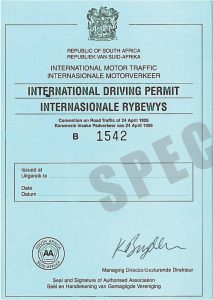
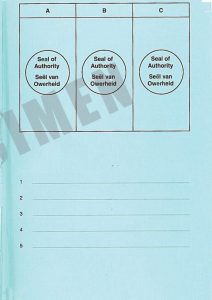
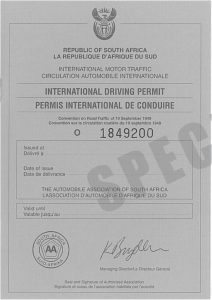
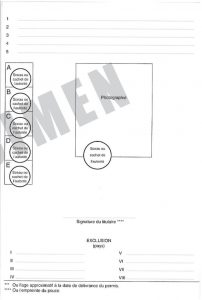
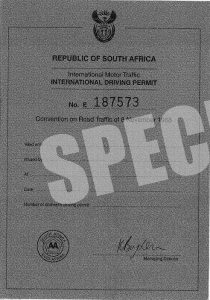
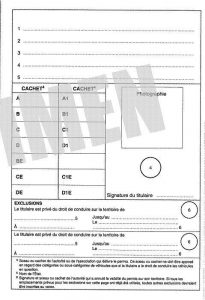
Related Resources
Student Loans in South Africa: How to Apply and What to Expect
For many young South Africans, accessing higher education is a dream that often comes with a financial challenge. Fortunately, several student loan optionsstrong> are available in South Africa to help fund university, college, or TVET studies. Whether you’re looking for a government loan like NSFAS or a private student loan from a bank, understanding the process is essential for success.
What Are Student Loans?
Student loans are a form of financial aid provided to eligible students to help cover tuition fees, books, accommodation, and other study-related expenses. In South Africa, these loans can come from government institutions like NSFAS or private banks such as Nedbank, Standard Bank, FNB, and Absa. Most loans offer repayment flexibility and low-interest options until you graduate.
Types of Student Loans in South Africa
- NSFAS (National Student Financial Aid Scheme): A government-funded loan/grant program for students from low-income households. Covers tuition, housing, transport, and meals.
- Bank Student Loans: Offered by most major banks. These are credit-based and require a guardian or parent as a co-signer.
- Private Loan Providers: Companies like Fundi offer educational loans covering various costs such as school fees, gadgets, and textbooks.
Requirements to Qualify for a Student Loan
Each provider has its own criteria, but most South African student loans require the following:
- Proof of South African citizenship or permanent residency
- Proof of registration or acceptance at a recognised tertiary institution
- Parent or guardian with a stable income to co-sign (for private loans)
- Completed application form with supporting documents (ID, proof of income, academic records)
How to Apply for a Student Loan
To apply for a student loan in South Africa, follow these steps:
- Identify your loan provider: Choose between NSFAS, a bank, or a private lender.
- Gather necessary documents: ID copies, academic transcripts, acceptance letters, and income statements.
- Complete the application form online or at a branch.
- Await approval: Some banks offer instant decisions, while NSFAS can take a few weeks.
- Receive disbursement: Funds are typically paid directly to the institution or your account, depending on the lender.
Loan Amounts and Repayment
The loan amount you can receive depends on your chosen lender and financial need:
- NSFAS: Covers full tuition, residence, books, and a personal allowance. The loan becomes a bursary if you pass all your courses.
- Banks: Can provide up to R120,000 or more annually, depending on tuition costs and credit history.
Repayment usually starts after graduation or once you start earning an income. Bank loans may require interest-only payments during your studies. NSFAS repayment only begins when you earn above a specific income threshold.
FAQs on Student Loans in South Africa
1. Can I apply for a student loan without a parent or guardian?
For government loans like NSFAS, yes. But most banks require a financially responsible co-signer, especially for students without an income.
2. Is NSFAS a loan or a bursary?
NSFAS starts as a loan, but it converts to a bursary if you meet academic performance requirements. This means you may not have to pay it back.
3. What is the interest rate on student loans?
Private banks offer competitive rates between 5% and 12%, depending on the applicant's credit profile. NSFAS charges a much lower interest rate, usually linked to inflation.
4. What happens if I fail my courses?
If you’re funded by NSFAS and fail, your loan won’t convert into a bursary, and you’ll need to repay the full amount. Banks may continue charging interest, and your co-signer may be held liable.
5. Can I use a student loan to pay for accommodation and laptops?
Yes. Both NSFAS and many bank student loans cover costs beyond tuition, including housing, meals, textbooks, and electronic devices like laptops or tablets.
Final Thoughts
Student loans in South Africa offer a much-needed financial lifeline to thousands of students every year. Whether you're applying through **NSFAS** or a private bank, ensure you understand the **terms, interest rates, and repayment conditions** before signing any agreement. Make informed decisions today to secure your academic and financial future tomorrow.